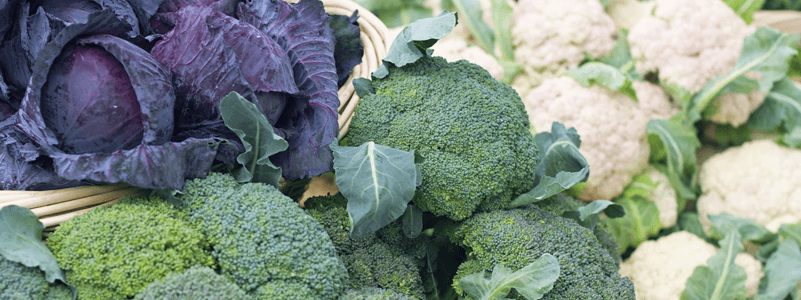Glutathione, a tripeptide and master antioxidant, protects cells from damage by neutralizing free radicals and reactive oxygen species, offering multifaceted benefits, including supporting the immune system, promoting heart health through improved circulation and cholesterol management, managing oxidative stress, and maintaining overall well-being as we age.
Glutathione is a tripeptide, which is a molecule consisting of three amino acids linked together by chemical bonds. It is an important nutrient in many organisms, including plants, animals and some bacteria. Glutathione benefits include it playing a role as a master antioxidant, meaning that it protects cells from the damage that occurs when chemicals react with oxygen. These chemicals primarily include free radicals, but other reactive oxygen species include heavy metals, lipid peroxides, and peroxides.
Glutathione production happens naturally in the body when the liver biosynthesizes glutathione from the amino acids' glycine, L-cysteine, and L-glutamic, which are readily available from a variety of dietary sources. Glutatione is therefore not an essential nutrient, although it is found in many fruits, meats, and vegetables.
The biological activity is primarily due to cysteine’s sulfhydryl group, which is a sulfur and hydrogen atom at the end of a molecule. This group easily donates protons to other molecules, causing glutathione to be highly reactive. Cysteine is relatively rare compared to glutathione’s other precursors, making cysteine the rate-limiting precursor for the biosynthesis of glutathione.
Glutathione’s value as a nutritional supplement derives from its role in the synthesis of proteins in the body. These proteins perform many functions relating to the synthesis and repair of tissue damage or even managing cell death.
Unfortunately, the body's ability to produce glutathione may decline as a result of poor nutrition, stress, and aging. One solution in these cases may be to increase glutathione levels through supplementation. In extreme cases, intravenous glutathione may be used to help mitigate the side effects of chemotherapy.
Glutathione protects against high levels of oxidative stress. Oxidative damage has been implicated in a wide range of diseases, such as cardiovascular diseases, neurodegenerative diseases, arthritis, type 2 diabetes, obesity, osteoporosis, metabolic syndrome, cancer, strokes, atherosclerosis, chronic inflammation, and also has an impact on the aging process of the body1, 2. As a result, increased levels of glutathione may be particularly important for maintaining the immune system and heart health.
Recent findings have shown that glutathione not only affects immunity generally, but plays a role in complex immune reactions such as fever. For example, studies have indicated that supplementation with glutathione weakens the effect of infectious and aseptic fevers.3
Glutathione is the most abundant antioxidant in the heart4, so it's not surprising that it's shown many benefits as a supplement in this area. For example, clinical trials have linked glutathione deficiency to a decrease in systolic and diastolic blood pressure.
The primary use of glutathione is as an antioxidant. As mentioned above, glutathione benefits include support for the immune system and heart health.
Glutathione may help support the body’s ability to manage the oxidative stress of cells. It may also improve the activity of other antioxidants such as vitamins C & E.
Glutathione may help support a healthy cardiovascular system, especially concerning healthy circulation and maintaining a healthy cholesterol profile.
Glutathione may also help maintain various systems as you age, including the eyes and skin.
Studies show that adequate glutathione levels in the lymphoid cells help support the immune system to function at its best. Lymphoid cells produce antibodies that destroy cellular invaders such as bacteria and viruses.

Glutathione, a powerful antioxidant, not only helps to reduce oxidative stress, but it’s also beneficial for people needing respiratory support. We believe that boosted glutathione levels also help young people’s immune system and development, which is why it features in Total Balance Children’s.
The body may not produce an adequate supply of glutathione under certain situations such as aging, poor diet, infections, radiation therapy, stress, and trauma. Anyone experiencing these situations may benefit from glutathione supplements. Additional signs that indicate you may need glutathione include stress, poor immune function, and heart health.
L-glutathione, reduced L-glutathione
References:
1. Dröge W, Breitkreutz R. Glutathione and immune function. Proc Nutr Soc. 2000 Nov;59(4):595-600. doi: 10.1017/s0029665100000847. PMID: 11115795.
2. Matuz-Mares, D.; Riveros-Rosas, H.; Vilchis-Landeros, M.M.; Vázquez-Meza, H. Glutathione Participation in the Prevention of Cardiovascular Diseases. Antioxidants 2021, 10, 1220. https://doi.org/10.3390/antiox10081220
3. Wrotek S, Sobocińska J, Kozłowski HM, Pawlikowska M, Jędrzejewski T, Dzialuk A. New Insights into the Role of Glutathione in the Mechanism of Fever. International Journal of Molecular Sciences. 2020; 21(4):1393. https://doi.org/10.3390/ijms21041393
Shipping calculated at checkout
